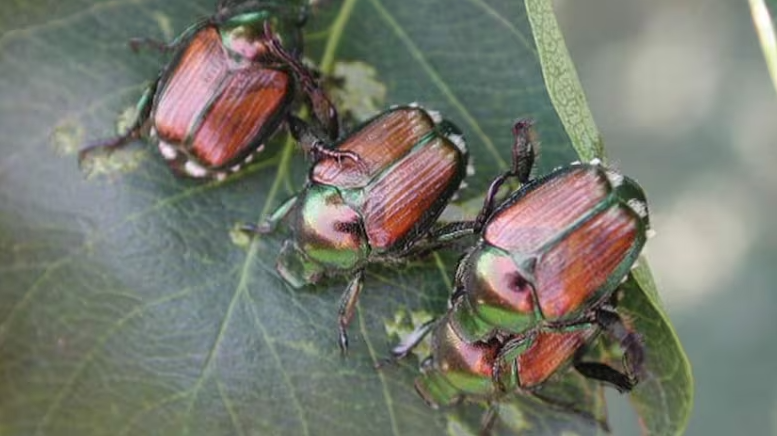Invasive Japanese Beetles Detected Beyond Containment Zone in Kamloops, B.C.
Shraddha Tripathy
7/22/20252 min read


An invasive pest is making its way beyond expected borders in Kamloops, B.C. — and experts say community vigilance is key to preventing a broader outbreak.
Japanese beetles, or Popillia japonica, have been found outside the city’s downtown containment zone for the first time since the pest was discovered in Kamloops late last year. The beetles feed on the roots of grass and the leaves of more than 300 plant species, posing a serious threat to native ecosystems and commercial crops.
The Canadian Food Inspection Agency (CFIA) responded to the initial detection in 2023 by establishing a containment zone around Kamloops’ downtown core. Under CFIA regulations, the movement of soil, whole plants, and certain plant materials out of this zone now requires a movement certificate. But a recent sighting suggests the beetles may have spread farther than initially thought.
Laine Martin, a resident of Kamloops’ west side — outside the regulated zone — returned from vacation to find dozens of beetles swarming her garden.
“Every time I come out, I find more,” she told CBC News. “I think Kamloops has a problem, and we have to be proactive. If that means expanding pesticide spraying, let’s get on top of this.”
CFIA: No Need to Panic, But Vigilance Needed
Jason Crandall, CFIA’s planning chief for the Japanese beetle response in B.C., confirmed the agency is in the early stages of its official survey in Kamloops. He encouraged residents to report sightings and, if possible, trap and freeze beetles for inspection.
“If you're in your backyard and find beetles, don't panic,” said Crandall. “It's important to act, but fear doesn’t help. The more data we have, the more targeted our response can be.”
CFIA’s current approach includes pesticide spraying — described by Crandall as “incredibly effective” — and strict controls on the movement of plant matter to limit the beetles’ spread.
A ‘Hitchhiker’ Pest
Japanese beetles don’t fly far on their own. Instead, they rely on human activity — moving soil, plants, or waste — to hitch rides into new areas, says Danielle Sparks, environmental services supervisor for the City of Kamloops.
“They’re a hitchhiker species,” she explained. “If you can, keep your plant waste on site through composting to reduce the risk.”
While the presence of beetles outside the downtown containment zone is concerning, officials say there is no need for alarm — yet. Residents are urged to stay alert, report any sightings, and avoid transporting potentially infested materials across the city.
“This is a pest we can control,” said Crandall, “but only if we act early and together.”
News
Stay updated with the latest BC news stories, subscribe to our newsletter today.
SUBSCRIBE
© 2025 Innovatory Labs Inc.. All rights reserved.
LINKS
